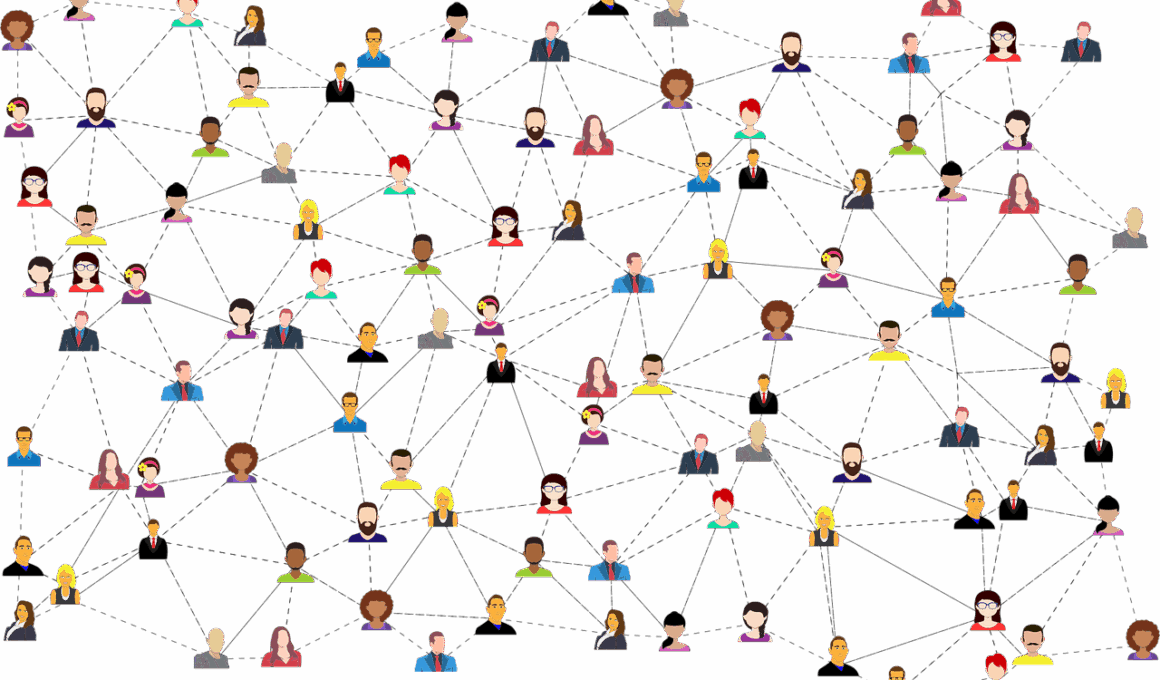How to Educate Your Community About Copyright Respect
Understanding copyright principles is essential for everyone in today’s digital landscape. Copyright refers to the legal right that grants the creator control over the use and redistribution of their work. Knowledge about copyright helps protect creative works. To educate your community effectively, start by sharing informative resources. Here are some effective methods:
- Host workshops to discuss copyright laws.
- Create online tutorials detailing copyright issues.
- Distribute flyers summarizing key copyright information.
These activities can build a foundation for understanding copyright importance. Creating engaging content is crucial for successful dissemination. Use videos, blogs, and infographics to help clarify complex legal jargon. Partnering with local artists can form a more vibrant educational initiative. They can share first-hand experiences about copyright infringement. You could also encourage discussions among community members. Inviting debates and sharing stories creates a supportive atmosphere for learning. Educating your community about copyright respect promotes a culture of creativity. This ultimately protects both individual creators and the community. Prioritizing respect for copyright fosters respect for original ideas and encourages innovation. Collective efforts raise awareness and inspire positive change.
Promoting Responsible Content Sharing
Another key aspect of educating about copyright involves sharing content responsibly. In an age of information overload, individuals often forget to give credit. Sharing artwork, music, or written material requires due diligence. To promote responsible sharing, encourage the use of proper citation methods. Teach community members how to identify copyright-protected works. Discussions around the consequences of infringement further emphasize this point. Consequences can include legal ramifications and financial penalties. Lead by example; always credit creators when sharing their work. Use appropriate licenses to demonstrate adherence to copyright laws. It is also wise to provide examples of public domain or Creative Commons materials. These resources offer easily accessible alternatives for sharing without legal issues. Create challenges that involve community members sharing content while respecting copyright laws. Such initiatives can raise awareness while promoting creativity. Implement a monthly theme, encouraging people to produce original works or remix existing ones legally. Celebrate these creations through social media campaigns or community events. Acknowledging individuals for their efforts fosters a supportive environment. Consequently, this strategy builds a community that values and respects copyrights consistently.
Using social media effectively can significantly enhance educational efforts around copyright respect. Design dedicated campaigns using hashtags to promote discussions surrounding copyright. Encourage participants to share experiences and educational resources about copyright. Engaging graphics, infographics, and videos can capture public interest quickly. Utilize platforms such as Facebook, Instagram, and Twitter to reach diverse audiences. Collaborating with influencers can expand your reach more effectively. They can help relay your message to their followers, amplifying the impact of your initiative. Monitoring audience feedback is essential for refining future campaigns. Encourage your community to ask questions, share comments or even voice concerns regarding copyright issues. This interaction promotes a deeper understanding, as individuals feel supported in their inquiries. Furthermore, create challenge events inviting users to share original works actively. Establish contests with small rewards to incentivize participation. This can foster creativity and awareness while remaining within the boundaries of copyright laws. Educating about copyright respect ensures that individuals appreciate their roles as creators and consumers. Emphasizing this balance fosters a respectful culture within creative communities. Together, collective efforts can significantly impact the understanding and respect for copyright in broader contexts.
Integrating Copyright Education in Schools
Incorporating copyright education into school curricula presents another excellent opportunity. Engaging younger generations is vital for developing responsible digital citizens. Start with simple concepts related to intellectual property and copyright rights. Introduce fun activities to reinforce these lessons, such as creating art projects with proper attribution. Provide access to resources that children can utilize. This might include websites featuring royalty-free images or writing tools. Arrange guest lectures from local artists to share their experiences with copyright. Hearing first-hand accounts can significantly impact students’ perceptions of copyright. Assessments that involve hands-on projects can test students’ understanding of these lessons. Encourage them to present their projects while discussing the importance of respecting copyright. Collaborating with local libraries can enhance this initiative. Organize events that focus on copyright education for families and communities. Inspire families to learn together, cementing knowledge outside of the classroom. Incorporating copyright discussions empowers the next generation to respect and value creative works consistently. Moreover, this lays the groundwork for producing innovative thinkers and responsible creators. Investing in this education now will yield significant benefits for future generations.
Supporting local creators is fundamental to fostering copyright respect. Highlighting local artists and their work provides tangible examples of copyright in action. Develop features on community members’ artistic contributions to raise awareness. Initiate recognition programs that celebrate original works and innovations. This acknowledgment can encourage budding creators to respect copyright as they aspire to create. Organize regular events, such as art shows or open mic nights, to showcase raw talent. Events allow community members to engage with creators and understand their efforts. Generating discussions around the creative process encourages a culture of appreciation and value. Hosting panel discussions featuring talking points around copyright helps broaden perspectives. Inviting established creators can lend credibility to discussions and inspire participants. Platforms like local radio stations and community blogs can extend the conversation beyond physical spaces. Utilize these platforms for interviews or features that emphasize copyright respect. Promoting the value of local creativity reinforces the seriousness of copyright issues. When community members witness the effort that goes into original works, they may become more inclined to respect copyright principles. This shared value system enhances creativity within the community as a whole.
Utilizing Technology for Copyright Education
Advancements in technology open up numerous resources for educating communities about copyright. Online courses, webinars, and podcasts provide flexible learning opportunities. These platforms can reach larger audiences and cater to diverse learning preferences. Use tools such as video conferencing to create interactive workshops. Invite industry professionals to lead discussions on best practices and current trends. Students can engage directly with those knowledgeable in copyright. Create a digital library full of articles, guides, and resources regarding copyright education. Offering varied formats addresses the needs of different community members. Furthermore, technology facilitates collaboration on projects while encouraging respect for copyright. Cloud-based platforms enable creators to share drafts while managing copyright rights. Tools like Google Workspace or Dropbox offer secure options for collaboration. Encourage community members to share their work in a way that respects copyright through these tools. Establishing an online hub for sharing resources can promote copyright discussions. Consider creating a blog dedicated to copyright education and sharing best practices. Engaging community members in technology fosters knowledge, creativity, and respect for copyright laws. Consequently, this engenders a culture of accountability within the community.
Lastly, long-term community commitment is vital for fostering respect for copyright. Consistent engagement efforts ensure that copyright education remains a priority. Forming partnerships with local organizations can help maintain momentum. Collaborative initiatives can focus on ongoing educational programs that reinforce these principles. Establishing volunteer committees allows community members to take ownership of content creation. By doing so, people feel directly involved in advocating for copyright respect. Conduct regular evaluations of initiatives to measure impact and adjust goals accordingly. Adjustments based on feedback enhance educational offerings addressing community needs. Celebrate achievements to keep your community motivated. Organizing annual copyright awareness days can spread the message further. Engage other organizations or schools to help amplify efforts. Highlighting community achievements showcases successful respect for copyrights, encouraging replication in other areas. Inspiring individuals to take pride in their contributions fosters a collective commitment to creativity. As communities grow and evolve, so too should their understanding and respect for copyright. Sustaining an ongoing dialogue about copyright is essential for creating responsible, creative citizens who value original work. This ensures creative fields remain vibrant and protected for future generations.
Creating a more profound impact requires collaborative actions that transcend the boundaries of copyright education.


